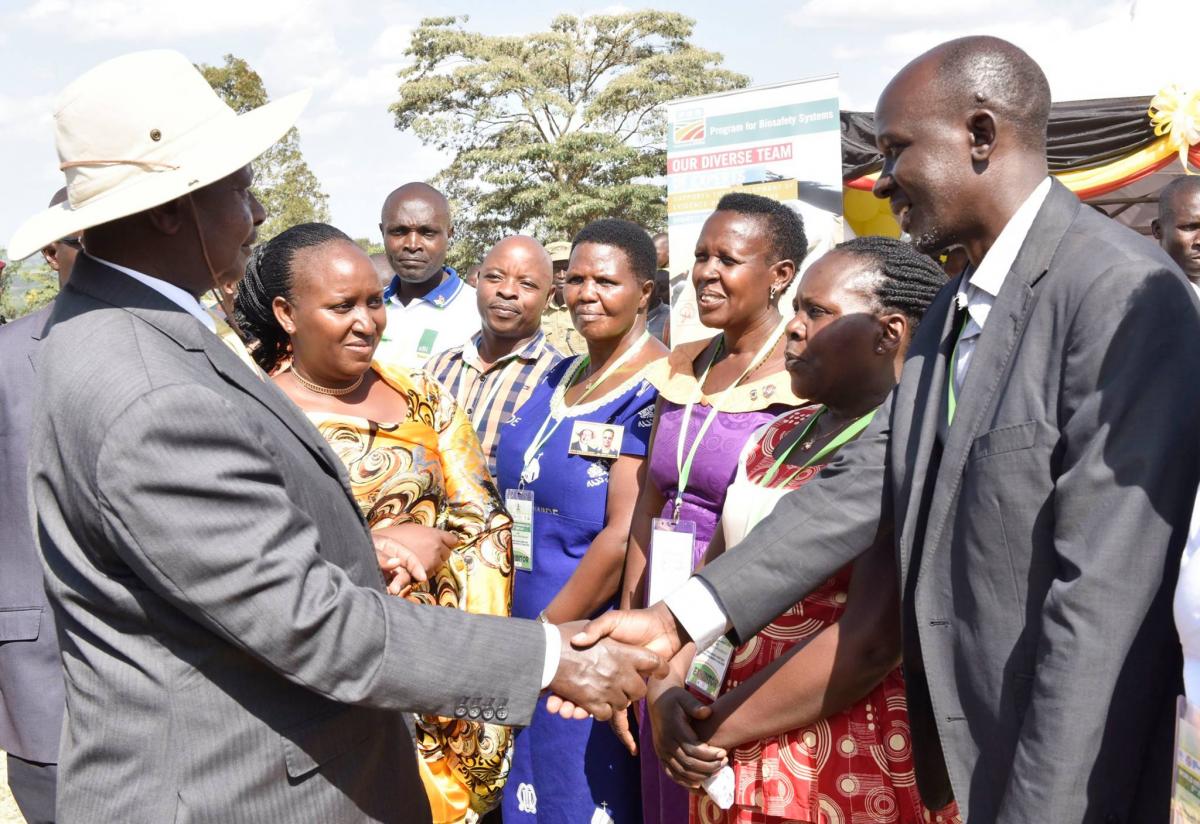
President Yoweri Museveni of Uganda has given his strongest endorsement yet for the urgent need to use biotechnology in African agriculture, potentially breaking the nation’s years-long political stalemate over whether its struggling farmers will be permitted to use GMOs.
“On the subject of GMOs, let us all move as a block and all decisions should be based on sound science,” the president said. “This technology is working elsewhere and we should not be left behind, the way we missed out during the green revolution that brought food security to South East Asia.”
Referring to the long-stalled Biosafety and Biotechnology Bill, which has been blocked in the Ugandan parliament by aggressive lobbying from anti-GMO groups, Museveni was unambiguous in voicing his support: “This Bill must be adopted for Ugandan farmers to access biotechnology products to increase their production… We should not allow activists to continue confusing our legislators.”
The biosafety bill was first tabled in 2012, yet has been repeatedly delayed. Ugandan plant scientists say they need the bill to be passed in order to establish a coherent regulatory framework enabling innovations developed in the laboratory to reach the farmers. Without biotechnology, scientists say they will not be able to deal with threats such as bacterial wilt in banana, virus infestations of cassava, and disease and climate impacts on maize.
Speaking bluntly about the GMO controversy, President Museveni said: “I have repeatedly said that there is nothing wrong with this technology… However, there are lots of controversy due to misinformation which unfortunately seems to have been bought by some legislators.”
Uganda has adopted a national strategy called Vision 2040, which aims to transform the country from a predominantly peasant to a modern and prosperous country within 30 years. This would involve transforming agriculture from a subsistence system characterized by low yields and structural food insecurity into a more commercial farming model with the capacity to feed the growing population, which is expected to double from the present day 40 million by mid-century.
Through harnessing “the power of science, technology and innovation,” the president said, “Africa has an opportunity that can help transform its agriculture to be a force of food security and economic growth. Our efforts must begin by strengthening investments in breakthrough technologies, such as climate-resilient and disease-resistant crops and livestock using both conventional and genetically engineered approaches.”
The president’s remarks were delivered at the High-Level Conference on Application of Science, Technology and Innovation in Harnessing African Agricultural Transformation in Kampala, Uganda, with the president represented by the Hon. Vincent Ssempijja, Cabinet Minister for Agriculture, Animal Industry and Fisheries in the Ugandan Cabinet.
